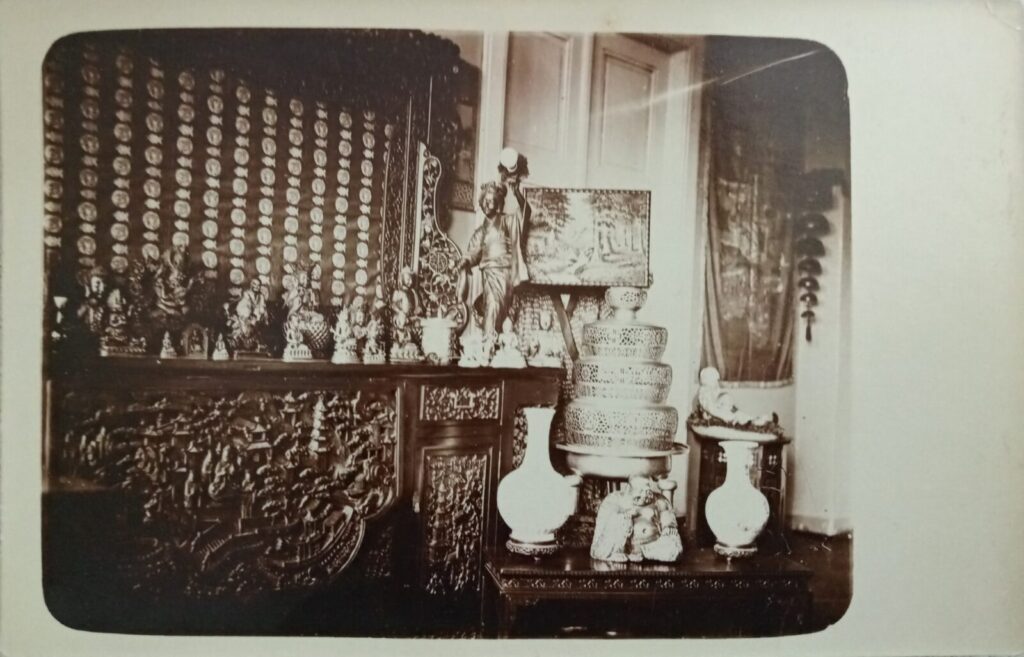The event will take place beetwen 23–24 April 2026 in Ljubljana (Slovenia), organized by the Institute for philosophical and religious studies at Science and Research Centre Koper, the Faculty of Arts, University of Ljubljana and Slovenian Ethnographic Museum.
In the first half of the 20th century, Europe witnessed a proliferation of collecting practices that blurred the boundaries between private passion and public display. Individuals—travellers, missionaries, scholars, entrepreneurs—assembled collections of non-European objects, often imagining them as “museums” that reflected personal vision, self-fashioning, or claims to cultural authority. At the same time, many public institutions, as well as the Catholic Church and other missionary organisations, established Non-European collections, embedding them within broader institutional and ideological frameworks.
The symposium Project Museum seeks to explore these entangled practices of collecting, interpretation, and display. By focusing on the shifting relationships between private and public spheres, it invites reflection on how objects circulated across domestic interiors, ecclesiastical settings, and emerging museums. We aim to interrogate how questions of authorship, authority, knowledge transfer, and representation shaped the early 20th-century collecting landscape, and how these collections—provisional or enduring—contributed to the idea of the museum as a cultural project.
We invite contributions addressing (but not limited to) the following themes:
· Private museums and personal collections: In what ways did individuals in the early 20th century assemble and interpret non-European objects, and how did they envision their collections as “museums” in their own right? To what extent were such projects shaped by autobiography, social standing, intellectual aspiration, or the desire for cultural distinction? How did these private endeavours intersect with broader currents of collecting and display?
· Public institutions and religious organizations: How did public institutions, as well as the Catholic Church and other missionary bodies, form and frame collections of non-European objects? What purposes did these collections serve within educational, evangelizing, or cultural agendas, and how were they positioned in relation to broader institutional identities?
· The interplay of private and public spheres: How did private collections become absorbed into public institutions, and conversely, how did institutional practices draw on personal initiatives? What negotiations, tensions, or synergies emerged as objects moved between domestic, ecclesiastical, and museum settings?
· Missionary collections: In what ways did missionary activity contribute to the acquisition, interpretation, and display of non-European objects? How did questions of belief, power, and representation shape these collections, and how were they mobilized within both local and global narratives of mission?
· Museological experiments and the “project museum”: How were collections staged, stored, or imagined as “museums” even when they lacked permanence or institutional stability? What do these experimental or provisional forms reveal about the ambitions, constraints, and fluidity of early 20th-century museological thought?
The symposium will take place on 23–24 April 2026 in Ljubljana, and will feature keynote lectures, thematic panels, and roundtable discussions.
Please submit an abstract of no more than 300 words, together with a short biographical note (max. 100 words).
Deadline for submissions is December 1st 2025, notification of acceptance is December 20th 2025.
Proposals and inquiries should be sent to: .
 en
en Slovenščina
Slovenščina Italiano
Italiano